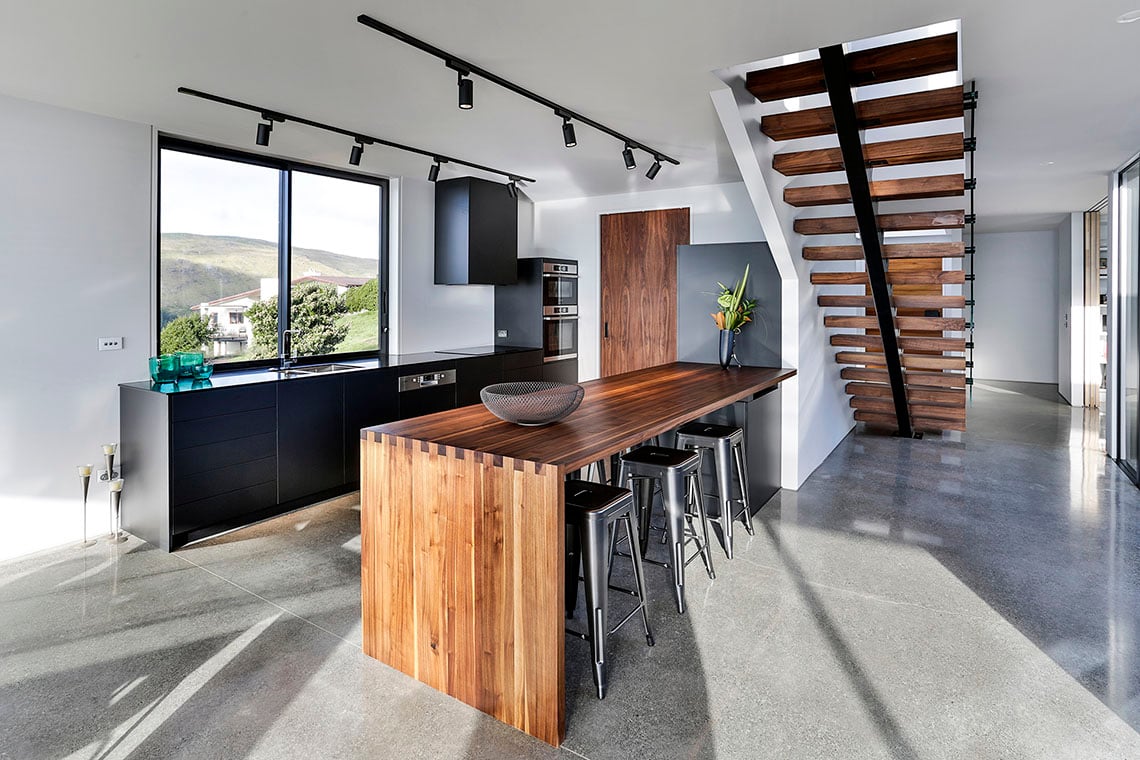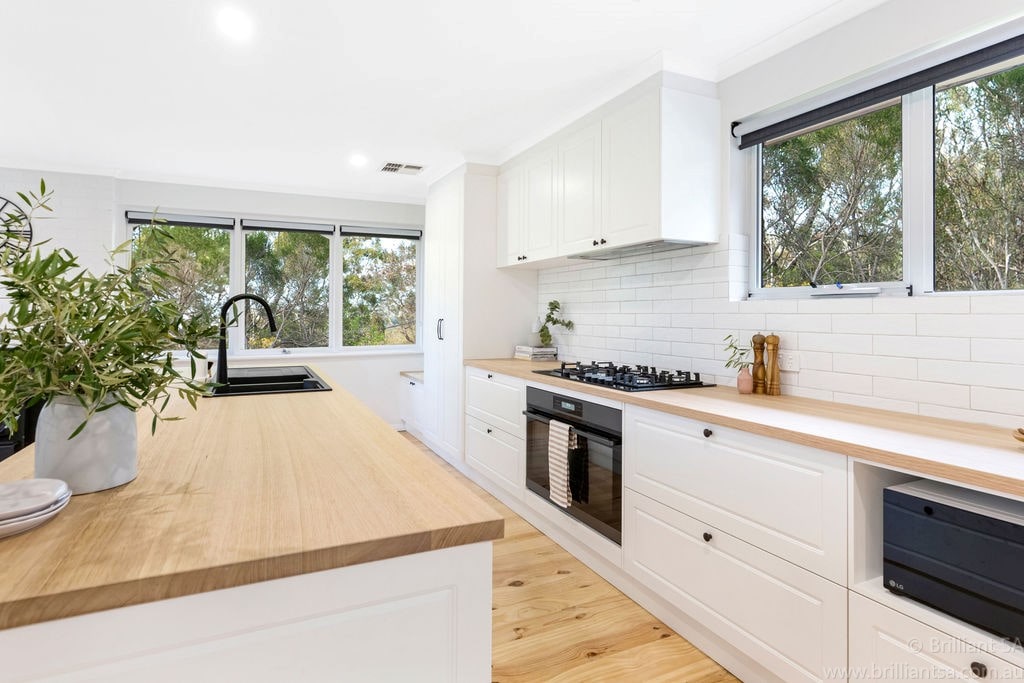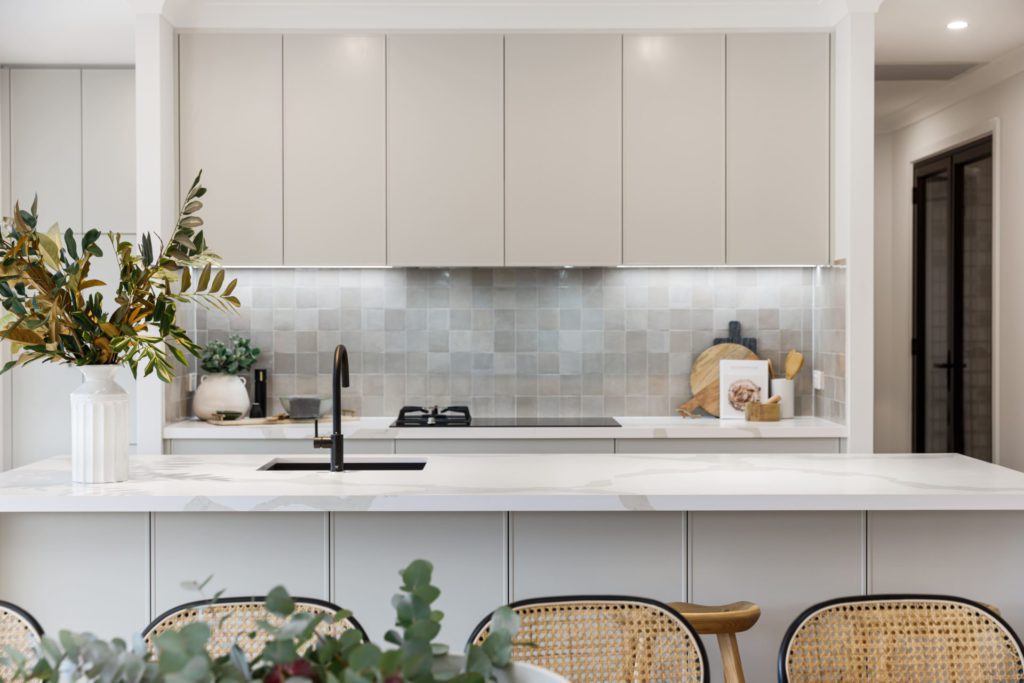Essential Tips for Preserving Your Cooking Area Benchtops for Resilient Charm
Preserving the elegance and longevity of your kitchen area benchtops calls for a thoughtful technique to care and cleansing. Routine upkeep techniques, such as using gentle cleaning remedies and protective procedures, can significantly extend the life of these surfaces. It's important to recognize which items can protect their stability while preventing damage. Additionally, attending to spills without delay and using straightforward protective techniques can make a recognizable difference. With various products and surfaces readily available, the ideal techniques may vary-- exploring these subtleties can disclose unexpected understandings for your kitchen area care routine.
Regular Cleaning Practices
Maintaining an immaculate kitchen area benchtop starts with applying routine cleaning techniques. This straightforward practice not only maintains the benchtop looking fresh yet likewise lowers the danger of contamination.
Along with everyday upkeep, an once a week deep tidy is advisable. During this process, consider making use of a more detailed option, such as a gentle multi-surface cleaner, to take on any type of persistent spots or deposits. For products like granite or quartz, it is crucial to adhere to maker recommendations for cleansing items to maintain their integrity.
Pay special focus to high-traffic locations where spills are more most likely to happen, and don't neglect to cleanse the sides and corners where dust can gather. Normal cleansing not only enhances the durability of your cooking area benchtop yet additionally guarantees a safe and welcoming cooking atmosphere. By creating these behaviors, homeowners can maintain the charm and functionality of their kitchen area surfaces over time.
Preventing Harsh Chemicals
When it involves cleaning up kitchen area benchtops, picking the appropriate cleaning items is vital (Kitchen Benchtops). The long life and aesthetic allure of your benchtops can be considerably endangered by the use of harsh chemicals. Lots of traditional cleaning representatives include abrasive compounds that can damage and plain surfaces, leading to unsightly marks and a decrease in their general life-span
Moreover, harsh chemicals can react negatively with details materials, such as natural stones or engineered surfaces, possibly causing discoloration or destruction. Acidic cleansers can wear down the surface of granite or marble, while bleach can damage artificial surface areas. For that reason, it is vital to go with pH-balanced, gentle cleaning solutions that effectively remove dirt and discolorations without risking damage to your benchtops.
Additionally, many environmentally friendly products are readily available on the marketplace, which not only supply risk-free cleaning alternatives yet likewise add to a healthier kitchen atmosphere. If you like a do it yourself method, a mixture of cozy water and light soap can be extremely effective (Kitchen Benchtops). By staying clear of extreme chemicals, you can maintain the elegance and integrity of your cooking area benchtops for several years to find
Using Cutting Boards
Utilizing reducing boards is vital for protecting your cooking area benchtops from square one and damage while preparing food. These boards work as a barrier in between your knives and the surface area of your benchtops, considerably lowering the danger of undesirable marks and wear. It is advisable to utilize a cutting board made from products such as wood, bamboo, or plastic, as each deals distinct advantages.
Wooden cutting boards are recognized for their toughness and knife-friendly homes; they can help maintain your blades sharp. Bamboo boards are an eco-friendly choice that is light-weight and immune to blade marks. Plastic cutting boards, on the other hand, are simple to clean and commonly dishwasher secure, check out here making them a useful option for everyday usage.

Securing and Shielding Surfaces
Safeguarding your kitchen benchtops prolongs beyond using reducing boards; securing the surfaces plays a pivotal function in safeguarding against discolorations, dampness, and put on. The ideal sealant can improve the sturdiness of materials, such as granite, quartz, and wood, ensuring they maintain their aesthetic charm in time.

Application of the sealant must be executed in a tidy, dry atmosphere, adhering to the producer's guidelines for ideal outcomes. Generally, this involves cleansing the surface thoroughly, applying the sealer uniformly, and enabling it to heal as recommended. Normal maintenance, consisting of resealing every 1-3 years depending upon use and product, will certainly strengthen security and lengthen the life of your benchtops, ensuring they stay a magnificent focal point in your cooking area.
Addressing Spots Without Delay
Discolorations on kitchen area benchtops can rapidly end up being a significant problem otherwise dealt with promptly. The longer a tarnish remains, the harder it becomes to remove, potentially causing irreversible discoloration and damage to the surface. It is essential to tackle spills and stains as quickly as they take place.
Various products call for specific strategies to discolor removal. For circumstances, non-porous surface areas like quartz can generally be cleaned up with light soap and water, while porous materials, such as natural stone, may need specific cleaners to stop fluid infiltration. Always refer to the maker's standards for the ideal cleansing practices.

Routine maintenance, including securing porous surfaces, can dramatically minimize the risk of discoloration. By quickly resolving spills and understanding the specific requirements of your benchtop product, you can maintain the aesthetic appeal and capability of your kitchen surfaces for many years to find.
Verdict
Finally, maintaining the beauty and functionality of kitchen benchtops calls for adherence to vital cleaning practices, avoidance of rough chemicals, and the usage of protective measures such as cutting boards. Routine sealing of porous products and timely attention to spills and discolorations are critical for maintaining the honesty of surface areas. By applying these methods, the durability and aesthetic charm of kitchen area benchtops can be substantially improved, guaranteeing an excellent and sturdy cooking atmosphere.